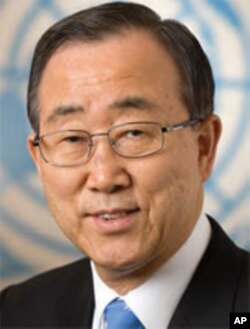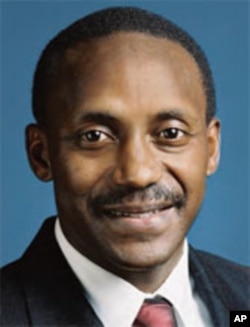A new U.N. report calls for expanding access to energy to more than two-billion people and boosting efforts for clean, efficient and renewable energy.
The Secretary-General’s Advisory Group on Energy and Climate Change report - Energy for a Sustainable Future - says many people still lack access to electricity, describing it as a “significant barrier” to development.
Secretary General Ban Ki Moon released the report Wednesday in New York, saying, “I convened this group last year for one simple reason. We need to urgently transform this global energy system.”
Moon adds, “The decisions we make today on energy will have a profound impact on global climate, on sustainable development, on economic growth and global security.”
He says a “clean energy revolution” is needed in developing countries to meet rising demand and reduce greenhouse gas emissions.
Findings
Moon says affordable, modern energy sources are necessary to meet the Millennium Development Goals by their target date of 2015.
“One-point-six-billion people lack access to electricity. Without electricity you cannot do anything in this world. Two to three billion people still rely on traditional energy sources, such as firewood, peat or dung. This affects their health and keeps people trapped in poverty,” he says.
The report calls for “universal access to basic modern energy services” by 2030. It says this can be achieved “without significantly increasing greenhouse emissions.”
New industrial revolution
Kandeh Yumkella, Director-General of the U.N. Industrial Development Organization, chairs the advisory group.
“What we advocate for here is a transition to a low carbon economy, investing in new energy systems. But these investments must also enhance access for all.”
He says there was much debate among advisory group members about reaching the energy goals by 2030.
“You can look at the composition of our group – more private sector than U.N. types. And that was a deliberate choice by the Secretary-General because, given the many dimensions and its linkages to so many things, we wanted fresh thinking from the private sector,” says Yumkella.
Clean, renewable energy is a major recommendation in the report.
“We believe that’s part of the transformative change,” he says, “that will in fact engender a new industrial revolution that will lift people out of poverty and also deal with some of the issues of climate change.”
United Nations Foundation President Timothy Wirth calls energy the “oxygen of commerce and wealth creation.” He adds, “Producing more with less makes economic sense and is fast approaching an environmental imperative.”









